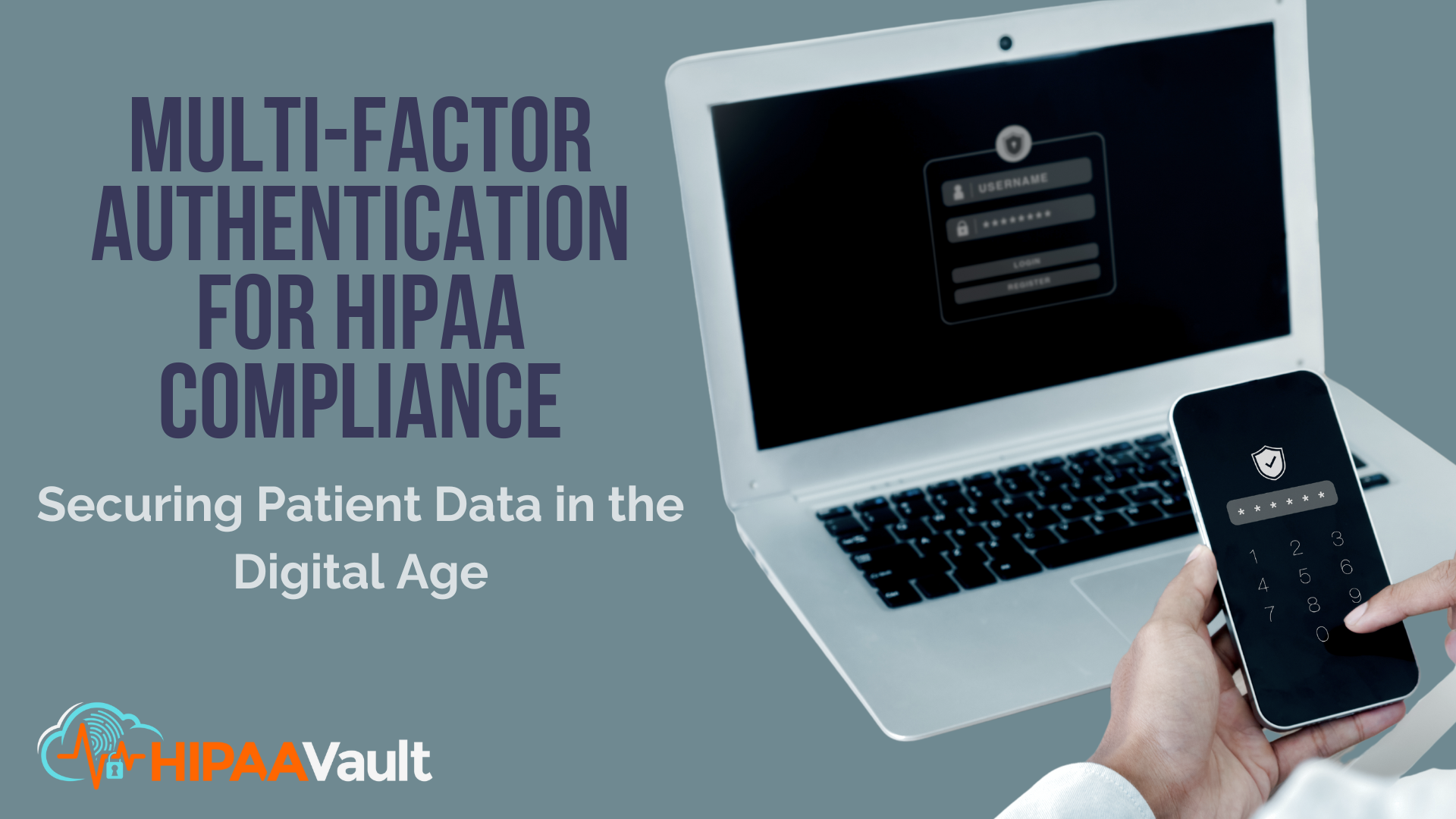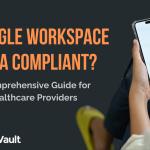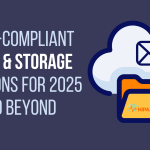
Protecting Electronic Protected Health Information (ePHI) is more critical than ever with the rise of cyber crime. Multi-Factor Authentication (MFA) has emerged as a crucial tool in maintaining HIPAA compliance and enhancing healthcare cybersecurity. This comprehensive guide will explore the importance of MFA, address common objections, and provide insights into its implementation for robust data breach prevention.
Common Objections to MFA Implementation
Despite its proven effectiveness, some healthcare organizations still hesitate to implement MFA. Let’s address three common objections:
“Strong Passwords Are Enough”
While strong passwords are essential, they represent a single point of failure. Consider this analogy: Would you skydive from 30,000 feet with only one parachute and no reserve? Similarly, a strong password alone offers little consolation if it falls into the wrong hands, potentially leading to catastrophic data loss and HIPAA violations.
“MFA Slows Down Workflows”
Some worry that adding an extra authentication step will impede efficiency. However, this concern pales in comparison to the potential consequences of a data breach. According to the 2023 Verizon Data Breach Investigations Report, 74% of breaches involved the human element, including social engineering attacks, errors, and misuse. The minimal time investment in MFA far outweighs the risk of downtime, data loss, and hefty fines resulting from a breach.
“It’s Not My Responsibility”
Developers and IT professionals might argue that implementing security measures like MFA isn’t their job. However, in the realm of healthcare cybersecurity, everyone plays a crucial role. Suggesting best practices to clients and integrating MFA into systems demonstrates a commitment to patient data protection and HIPAA compliance.
Understanding Multi-Factor Authentication (MFA)
What is MFA?
Multi-Factor Authentication is a security process that requires users to provide two or more verification factors to gain access to a resource such as an application, online account, or VPN. MFA goes beyond the traditional username and password combination, adding an extra layer of security to protect sensitive information.
Types of MFA Methods
- Something you know: Passwords, PINs, or security questions
- Something you have: Smartphone apps, security tokens, or smart cards
- Something you are: Biometrics such as fingerprints, facial recognition, or retinal scans
By combining two or more of these factors, MFA significantly reduces the risk of unauthorized access, even if one factor is compromised.
The Imperative of MFA in Healthcare Cybersecurity
HIPAA Compliance and MFA
While HIPAA doesn’t explicitly mandate MFA, it requires healthcare organizations to implement appropriate safeguards to protect ePHI. The Department of Health and Human Services has recommended two-factor authentication for nearly 15 years, recognizing its effectiveness in preventing unauthorized access.
Protecting Electronic Protected Health Information (ePHI)
The healthcare industry faces unique challenges in safeguarding sensitive patient data. A 2023 survey by the Ponemon Institute revealed that 67% of healthcare organizations have implemented MFA, but only 37% use it for all applications and systems. This gap in protection leaves ePHI vulnerable to breaches and HIPAA violations.
Implementing MFA for Enhanced Data Breach Prevention
Best Practices for MFA Deployment
- Conduct a risk assessment to identify critical systems and data
- Choose MFA methods that balance security and user experience
- Implement MFA for all users, including administrators and remote workers
- Regularly review and update MFA policies and procedures
- Provide comprehensive training for staff on MFA usage and importance
Overcoming Implementation Challenges
- Address user resistance through education and clear communication
- Ensure compatibility with existing systems and workflows
- Implement a phased rollout to minimize disruption
- Offer multiple MFA options to accommodate various user preferences
- Continuously monitor and evaluate MFA effectiveness
The Future of Healthcare IT Security: Beyond Passwords
Emerging MFA Technologies
As healthcare cybersecurity evolves, new MFA technologies are emerging to enhance patient data protection:
- Adaptive authentication: Adjusts security requirements based on user behavior and risk factors
- Passwordless authentication: Relies on biometrics or hardware tokens, eliminating the need for passwords
- Continuous authentication: Monitors user behavior throughout a session for ongoing verification
Integrating MFA with Existing Healthcare Systems
Implementing MFA doesn’t mean overhauling your entire IT infrastructure. Many HIPAA-compliant cloud solutions offer seamless MFA integration, allowing healthcare organizations to enhance their security posture without disrupting critical operations.
Securing Patient Data with Multi-Factor Authentication
In an era where data breaches are increasingly common and costly, Multi-Factor Authentication stands as a crucial defense in protecting Electronic Protected Health Information and maintaining HIPAA compliance. By implementing MFA, healthcare organizations can significantly reduce the risk of unauthorized access and demonstrate their commitment to patient data security.
Consider these compelling statistics:
- A 2023 cybersecurity report by Fortified Health Security found that 71% of healthcare organizations plan to increase their cybersecurity budgets, with a focus on implementing advanced authentication methods like MFA.
- Microsoft reports that enabling MFA can prevent 99.9% of account compromise attacks.
- The average cost of a healthcare data breach reached $10.93 million in 2023, according to IBM’s Cost of a Data Breach Report.
These figures underscore the critical importance of implementing robust security measures like MFA in healthcare settings.
As you consider implementing or expanding MFA in your organization, remember that it’s not just about compliance—it’s about protecting your patients, your reputation, and your business. By embracing Multi-Factor Authentication, you’re taking a proactive stance in the ongoing battle against cyber threats and demonstrating your commitment to the highest standards of healthcare cybersecurity.
At HIPAA Vault, we understand the unique challenges faced by healthcare organizations in protecting sensitive data. That’s why we use MFA 100% of the time and offer a range of HIPAA-compliant solutions, including secure Gmail, Outlook, HIPAA-compliant WordPress, and secure file sharing. Our team of experts is dedicated to helping you navigate the complex landscape of healthcare IT security, ensuring that your systems remain secure and compliant.



